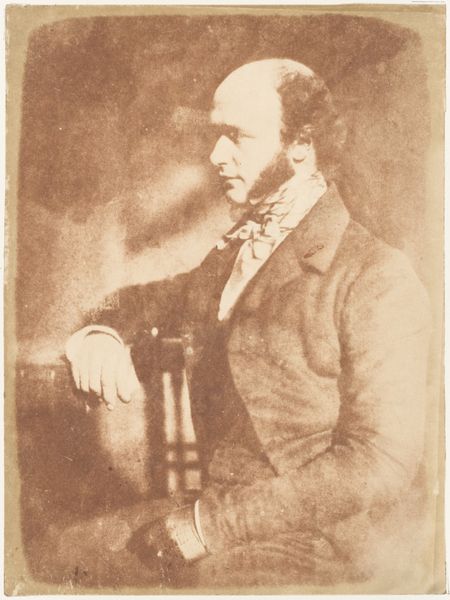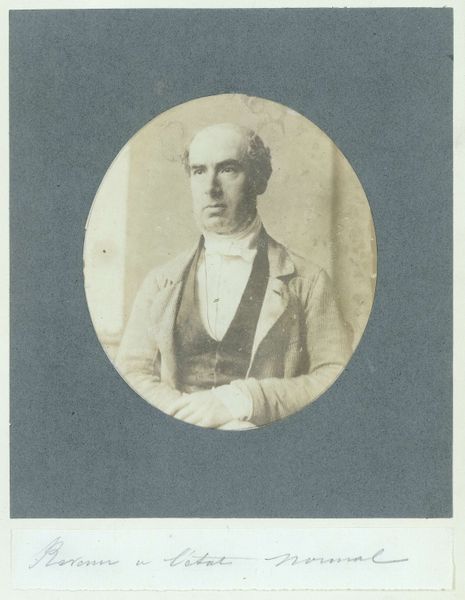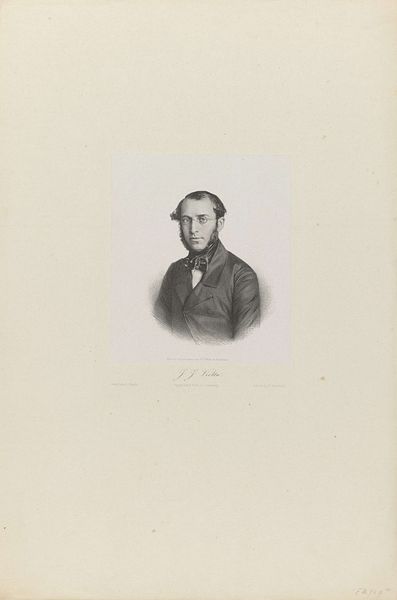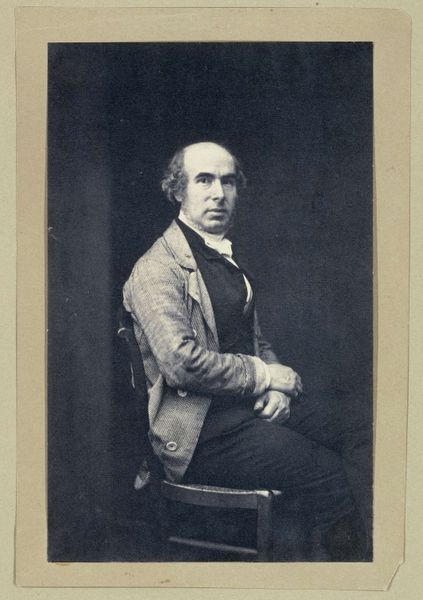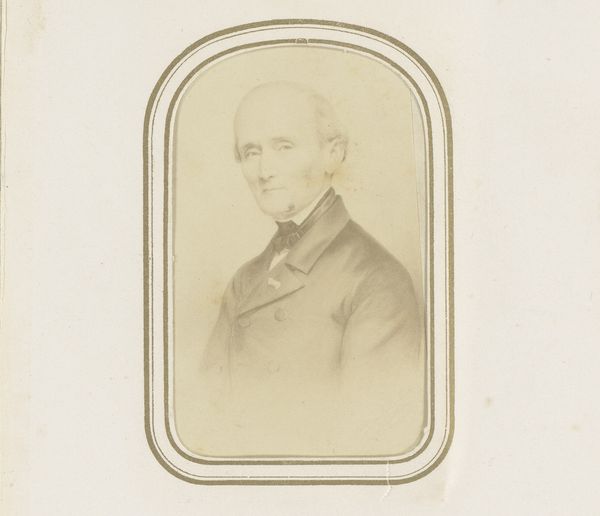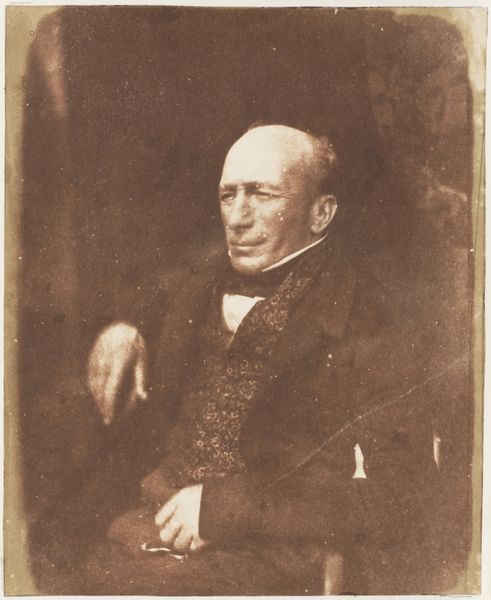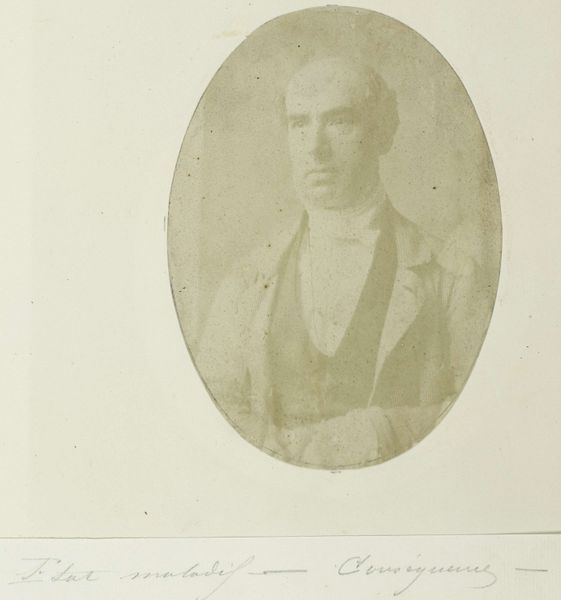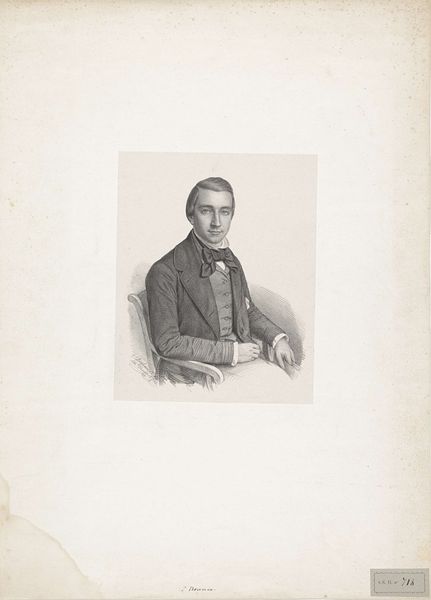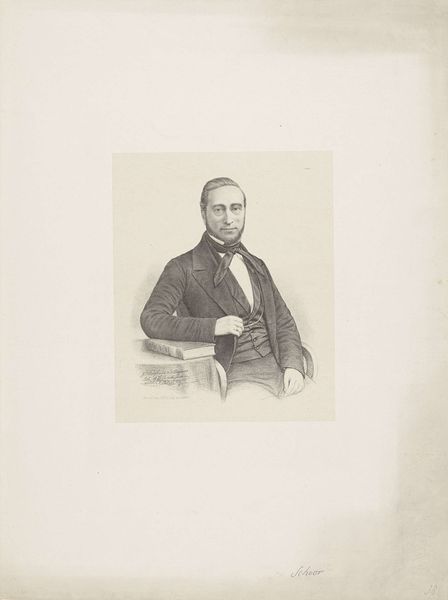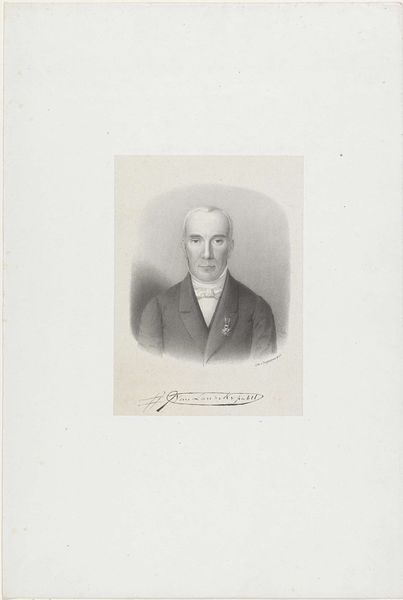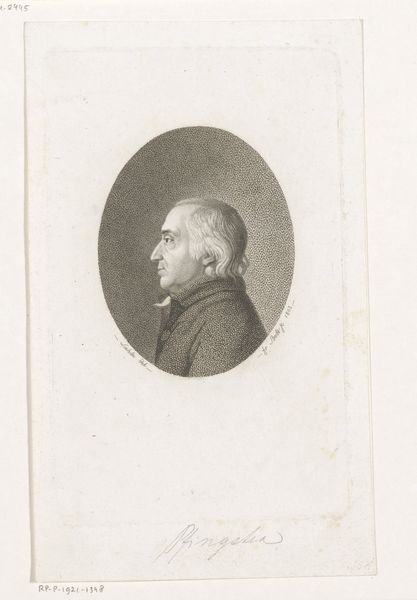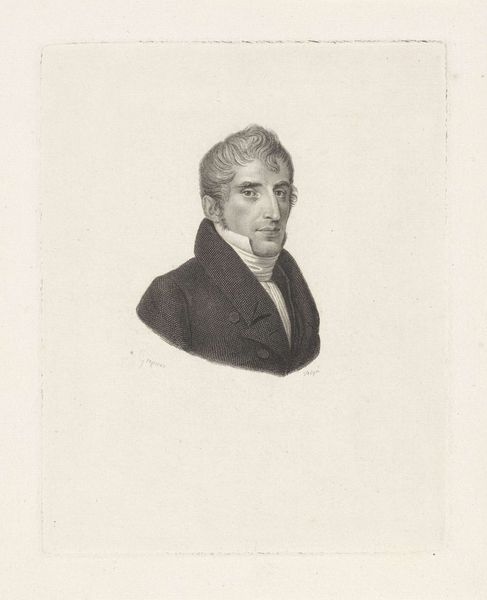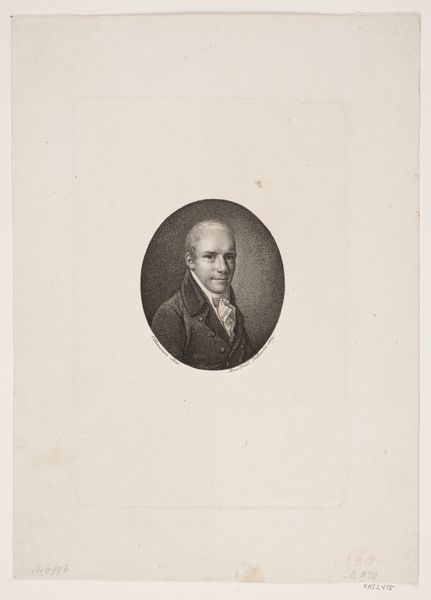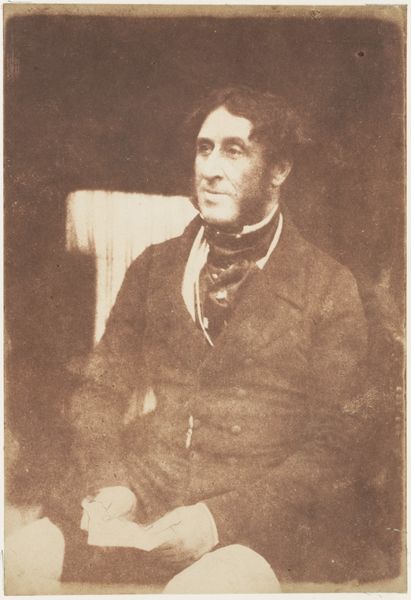
daguerreotype, photography
#
portrait
#
16_19th-century
#
daguerreotype
#
photography
#
realism
Dimensions: height 193 mm, width 126 mm
Copyright: Rijks Museum: Open Domain
Eduard Isaac Asser created this self-portrait using an early photographic process, likely a daguerreotype or calotype, sometime in the mid-19th century. This image offers us a glimpse into the world of early photography and its role in shaping self-representation. Photography in the 19th century Netherlands was developing alongside ideas about nationhood, class, and individual identity. Asser, a lawyer and pioneer in photography, positions himself in a way that reflects the conventions of portrait painting, yet the stark realism of the photograph also hints at new possibilities for capturing and presenting the self. What does it mean to represent yourself through this new medium? To fully understand this image, we might delve into the archives of photographic societies, technical manuals, and even the personal writings of figures like Asser, uncovering the complex interplay between technology, artistry, and social identity. We can then truly understand the social and institutional contexts that inform how art is made and received.
Comments
No comments
Be the first to comment and join the conversation on the ultimate creative platform.
